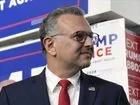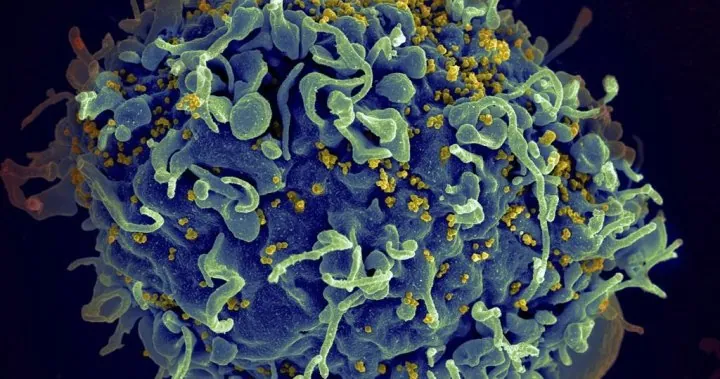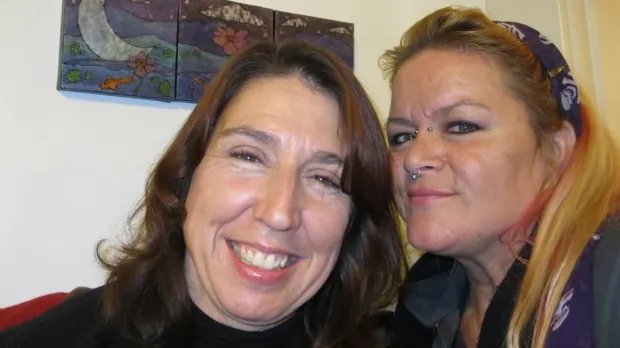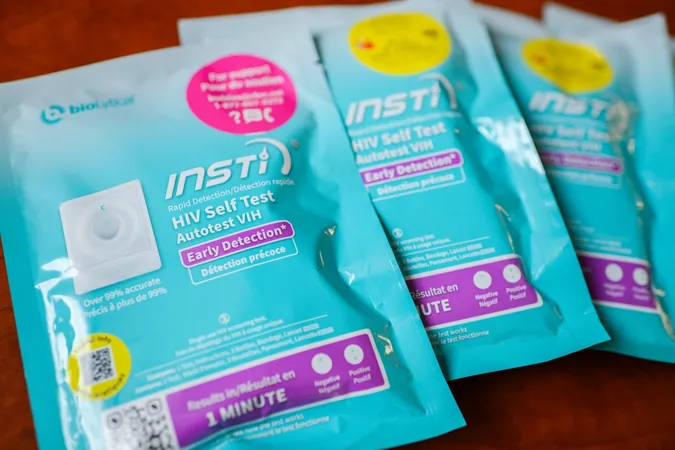
Historic Ceasefire Agreement: Entire Lebanon is Covered, Not Just the South!
2024-12-04
Author: Liam
In a groundbreaking revelation, Massad Boulos, Senior Adviser on Arab and Middle Eastern Affairs for U.S. President-elect Donald Trump, has declared that the recently established ceasefire between Lebanon and Israel encompasses the entire territory of Lebanon, contrary to the initial belief that it only applied to the southern region.
In an insightful interview with Le Point, Boulos emphasized the far-reaching implications of this agreement, stating, “This is a historic agreement for both countries, the significance of which will be assessed in the weeks and months ahead.”
Boulos clarified that the ceasefire is comprehensive, addressing disarmament across the entire country. He pointed out that the initial misunderstanding in Lebanon stemmed from a belief that the document was limited to the area south of the Litani River.
“This is not the case,” he explained. “It encompasses the entire nation, focusing on the disarmament of all armed factions, including militias and paramilitary groups.”
Specific focus was placed on the implementation of relevant U.N. resolutions, specifically Resolutions 1701 and 1559, which dictate that only certain institutions in Lebanon—namely the Lebanese Army, Internal Security Forces, customs agencies, and municipal police—are permitted to bear arms.
When questioned about the potential challenges in disarming Hezbollah and other armed groups, Boulos acknowledged the complexities of the situation. “It’s indeed a challenging task,” he admitted.
“Some estimates suggest that nearly 70% of strategic weapons and missile or drone facilities have already been neutralized. However, the Lebanese Army is expected to take the lead in this disarmament process, which will take time—likely months or longer.”
He assured that the ceasefire agreement grants the Lebanese Army the authority to take necessary actions to enforce this disarmament. “The Lebanese Army is now tasked with monitoring the flow of arms across critical points such as the Syrian border, the Beirut airport, and the port of Beirut,” Boulos added.
Despite ongoing violations of the ceasefire by both the Israeli army and various Lebanese factions, Boulos maintained that during this 60-day trial period, the agreement remains valid.
“Both sides have grievances and we must remember that the text allows each party the right to self-defense,” he stated.
Boulos also spotlighted the critical role the United States and France will play in ensuring the stability of this ceasefire. A monitoring committee will oversee the implementation of the ceasefire’s terms, which, according to him, is a significant improvement from the past.
“Unlike the situation in 2006 with Resolution 1701, where implementation lacked oversight, this agreement establishes a concrete mechanism for monitoring,” he stressed.
In closing, Boulos shared a message to Lebanon's lawmakers, urging a careful approach in the upcoming presidential elections.
“We must strive for the participation of a vast majority of representatives of the Lebanese people,” he concluded, warning against hastily selecting a president with minimal support.
As Lebanon navigates this pivotal moment, the eyes of the world will be watching to see if this ceasefire agreement can pave the way for lasting peace and stability in the region.









 Brasil (PT)
Brasil (PT)
 Canada (EN)
Canada (EN)
 Chile (ES)
Chile (ES)
 España (ES)
España (ES)
 France (FR)
France (FR)
 Hong Kong (EN)
Hong Kong (EN)
 Italia (IT)
Italia (IT)
 日本 (JA)
日本 (JA)
 Magyarország (HU)
Magyarország (HU)
 Norge (NO)
Norge (NO)
 Polska (PL)
Polska (PL)
 Schweiz (DE)
Schweiz (DE)
 Singapore (EN)
Singapore (EN)
 Sverige (SV)
Sverige (SV)
 Suomi (FI)
Suomi (FI)
 Türkiye (TR)
Türkiye (TR)